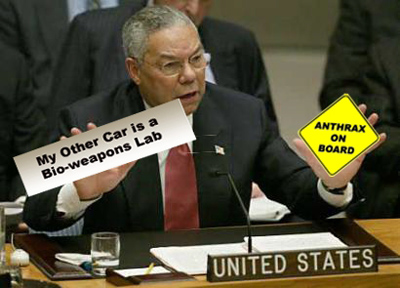Hans Blix, ex-head of the United Nations Monitoring, Verification and Inspection Commission in charge of monitoring Iraq, has recently reflected his thoughts -10 years in the aftermath of the catastrophic invasion of Iraq- regarding his mission in Iraq: “I look again at the reasons why this terrible mistake — and violation of the U.N. charter — took place and explore if any lessons be drawn. Here are my thoughts. The war aimed to eliminate weapons of mass destruction, but there weren’t any. The war aimed to eliminate al Qaeda in Iraq, but the terrorist group didn’t exist in the country until after the invasion”.
“The Bush administration certainly wanted to go to war, and it advanced eradication of weapons of mass destruction as the main reason. As Deputy Secretary of Defense Paul Wolfowitz has since explained, it was the only rationale that was acceptable to all parts of the U.S. administration. However, suspicions are one thing and reality is quite another. U.N. inspectors were asked to search for, report and destroy real weapons. As we found no weapons and no evidence supporting the suspicions, we reported this. But U.S. Defense Secretary Donald Rumsfield dismissed our reports with one of his wittier retorts: “The absence of evidence is not evidence of absence.”
“On February 11 — less than five weeks before the invasion — I told U.S. national security adviser Condoleezza Rice I wasn’t terribly impressed by the intelligence we had received from the U.S., and that there had been no weapons of mass destruction at any of the sites we had been recommended by American forces. Her response was that it was Iraq, and not the intelligence, that was on trial. And during a telephone chat with Tony Blair on February 20, I told the British prime minister that it would be paradoxical and absurd if a quarter of a million troops were to invade Iraq and find very little in the way of weapons. He responded by telling me intelligence was clear that Saddam had reconstituted his weapons of mass destruction program..” Blix added.
“At any rate, whatever view one took of the evidence of weapons, no one could believe in 2003 that prostrate Iraq was a threat to any other state. The most important lesson of the Iraq War, I think, has been that an overconfidence in military power has been replaced by an understanding that there are severe limitations on what can be achieved by military means.” Concluded Blix.
Meanwhile, the Independent on Sunday two days ago reported that unseen evidence given to the Chilcot Inquiry by British intelligence has revealed that former prime minister Tony Blair was told that Iraq had, at most, only a trivial amount of weapons of mass destruction (WMD).
With this in mind, the statement issued yesterday by Foreign and Expatriates Ministry is indeed laudable and highly appreciated. The UN Secretary General’s demand to expand tasks of the specialized technical mission formed to investigate the use of the terrorist groups of chemical weapons against civilians in Khan al-Asal in Aleppo province should be strongly be turned down; Ki-Moon’s demand does contradict the Syrian demand and indicate sinister plotted intentions of the states, which have sought to add them, as they mean to allow the mission to spread across Syria in violation of the Syrian sovereignty, and possibly as a prelude to repeat the above mentioned scenario in Iraq.
The ministry regretted that the UN Secretary General had yielded to pressures of the states which back bloodshed in Syria. “Syria can’t accept such maneuvers from the UN General Secretariat, taking into consideration the negative role it played in Iraq to pave the way for the US invasion.”
Syria was and is still ready to cooperate with the General secretariat as regards sending the mission immediately to Khan al-Asal according to the latter sent by Foreign and Expatriates Ministry to Ki-moon on April 5th.
Dr. Mohammad Abdo Al-Ibrahim

